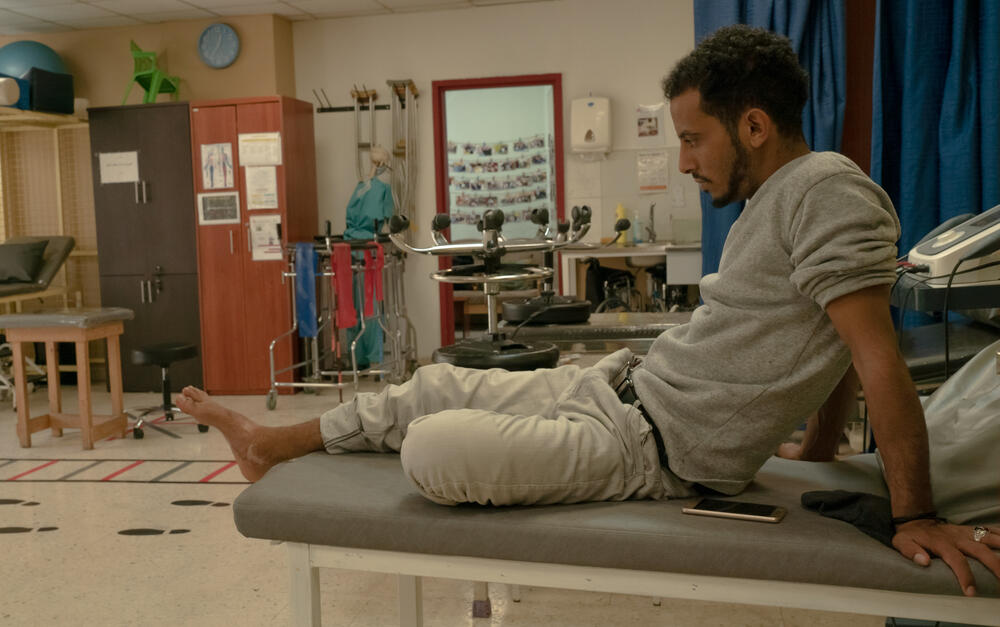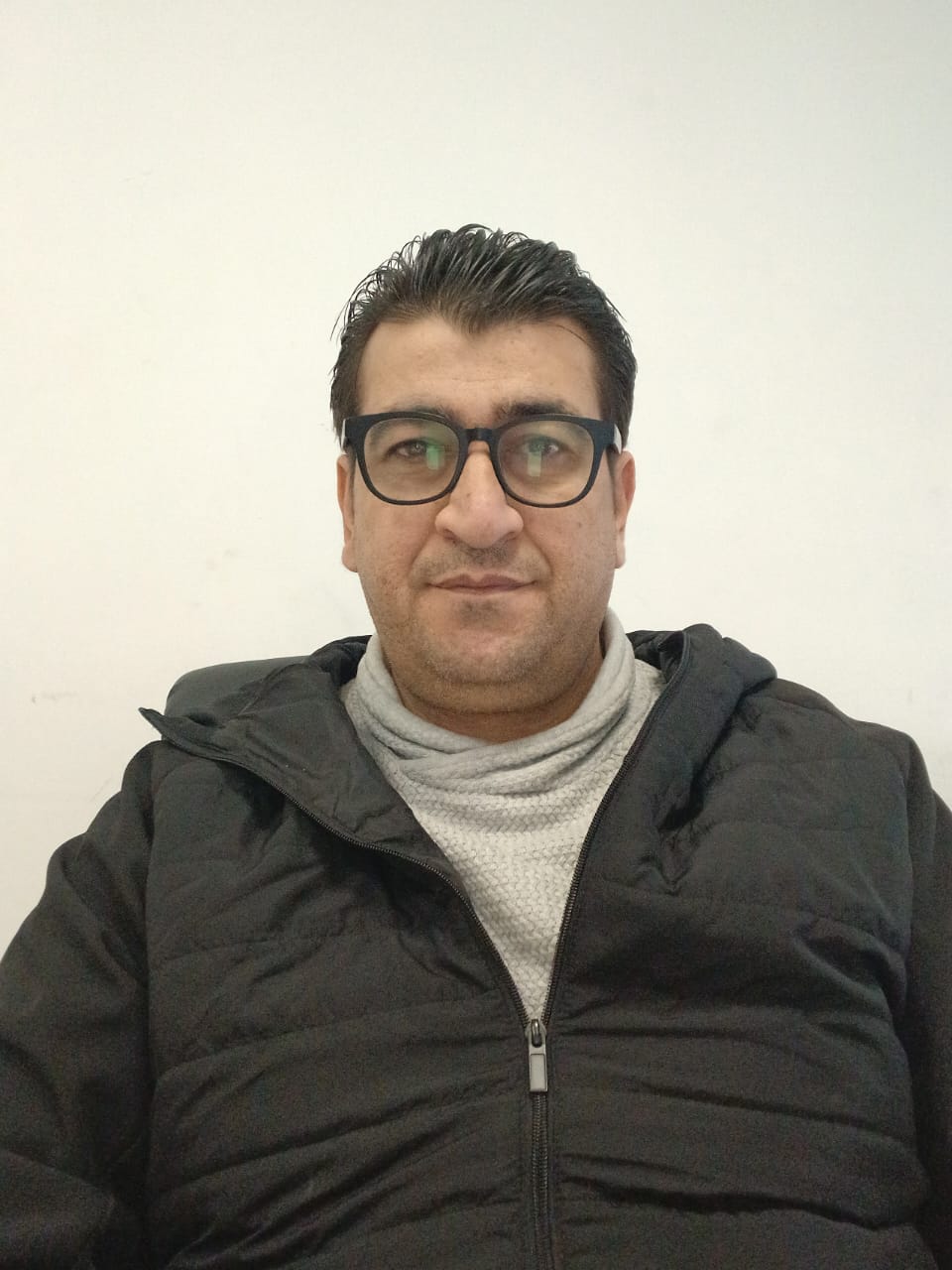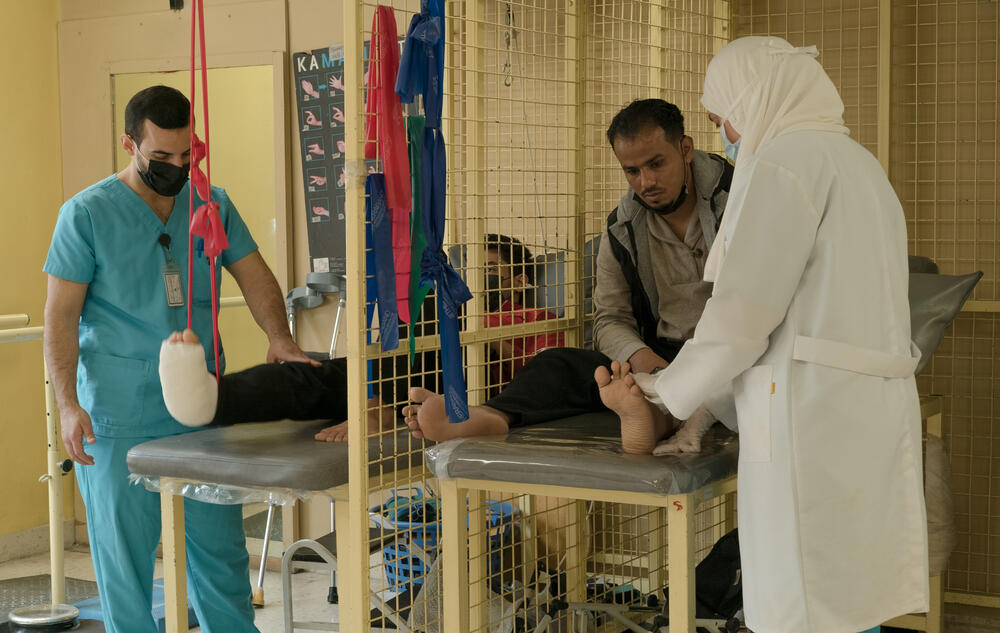How losing a leg can give a patient back their life
A decade after a devastating injury, a patient faces a decision he never wanted to make - changing his life in ways he hadn’t dared to imagine. Physical rehabilitation manager Hussein Al-Mahmoud shares the story…
"Hassan* is from Iraq. Ten years before I met with him in Amman, a traumatic injury left him with a complicated fracture of the tibia and osteomyelitis – an infection in the bone. For ten years Hassan had been in pain, unable to work, only able to walk on crutches.
Osteomyelitis is relatively common in people injured in conflict zones: as bullets or shrapnel penetrate the body, they carry bacteria deep into the bone. Effective treatment is often unavailable in hospitals struggling to meet the needs of a community hit by war.
This is why MSF’s Reconstructive Surgery Hospital exists. Located in Amman, Jordan, the hospital is unique in MSF: a place in a stable, peaceful country, where patients injured in conflict zones can be referred to receive life-changing specialist treatment.
A different perspective
Our expert orthopaedic surgeons had assessed Hassan and after careful consideration, explained that the best option would be to amputate his leg. The damage to the bone was just too extensive.
When I met Hassan at the hospital, this news had left him feeling hopeless. He feared that without his leg, he wouldn’t even be able to walk with crutches. Ten years after he survived a severe injury, he felt confronted with a new loss.
Our hospital has been caring for people with these severe injuries for a long time, and we know that recovery isn’t just about surgery.
Our mental health team started working with Hassan, and I started visiting him every day.
I talked to Hassan about the many patients I’ve worked with over the years. I explained how a prosthetic leg could help him get his independence back, and showed him videos of people walking with prostheses, so he could see how it might work for him.
At last Hassan felt ready. He decided to go ahead with the operation.

Help us prepare for the next emergency
The patients
Our hospital treats patients from across the Middle East and beyond. Places like Yemen, Palestine and Iraq. Often they have been living with their injuries for a long time, and have exhausted the treatment options in their home countries.
MSF patient liaison officers in each country help collect all the medical information needed for each case, and send it to our team here in Jordan, to assess whether we can help. Our surgical and rehabilitation teams specialise in injuries to the bones; the jaw and face; and the soft tissue, like burns. At the same time we have the mental health team, health educators and pain management specialists, all working together to provide really holistic care.
Hard to express
Hassan’s surgery went smoothly, and after some time to recover, he was soon ready to start the next stage: physical rehabilitation.
We took Hassan to the local company we work with to be assessed and fitted for his prosthetic leg. It can take time to get used to, but Hassan adjusted fast.
Within a few weeks, he was almost jogging across the room.
Hassan had spent ten years in pain and on crutches. At the hospital he’d been withdrawn and depressed at the thought of the amputation. So, I don’t think I will forget his happiness when he realised he was able to walk unassisted. He told me that he hadn’t believed it was possible. But his gait was so natural that with trousers covering the prosthetic, it was hard to tell that he’d had a major injury at all.
This remarkable progress not only relieved Hassan from years of pain but also opened up new possibilities for his future. With his improved mobility, he can now return to work, support his family more effectively, and even participate in activities he once thought impossible, such as playing with his children.
In physiotherapy we see every injury as unique. We work together with our patients, tailoring our treatment plan according to the patient’s needs, and their hopes. And then when you work together and you can see the change in the patient’s life and their future, it’s hard to express how it feels."
*Name changed
MSF in Jordan
Médecins Sans Frontières/Doctors Without Borders (MSF) first worked in Jordan in 2006. We currently offer reconstructive surgery to war-wounded patients from across the Middle East and healthcare to Syrian refugees and host communities.


